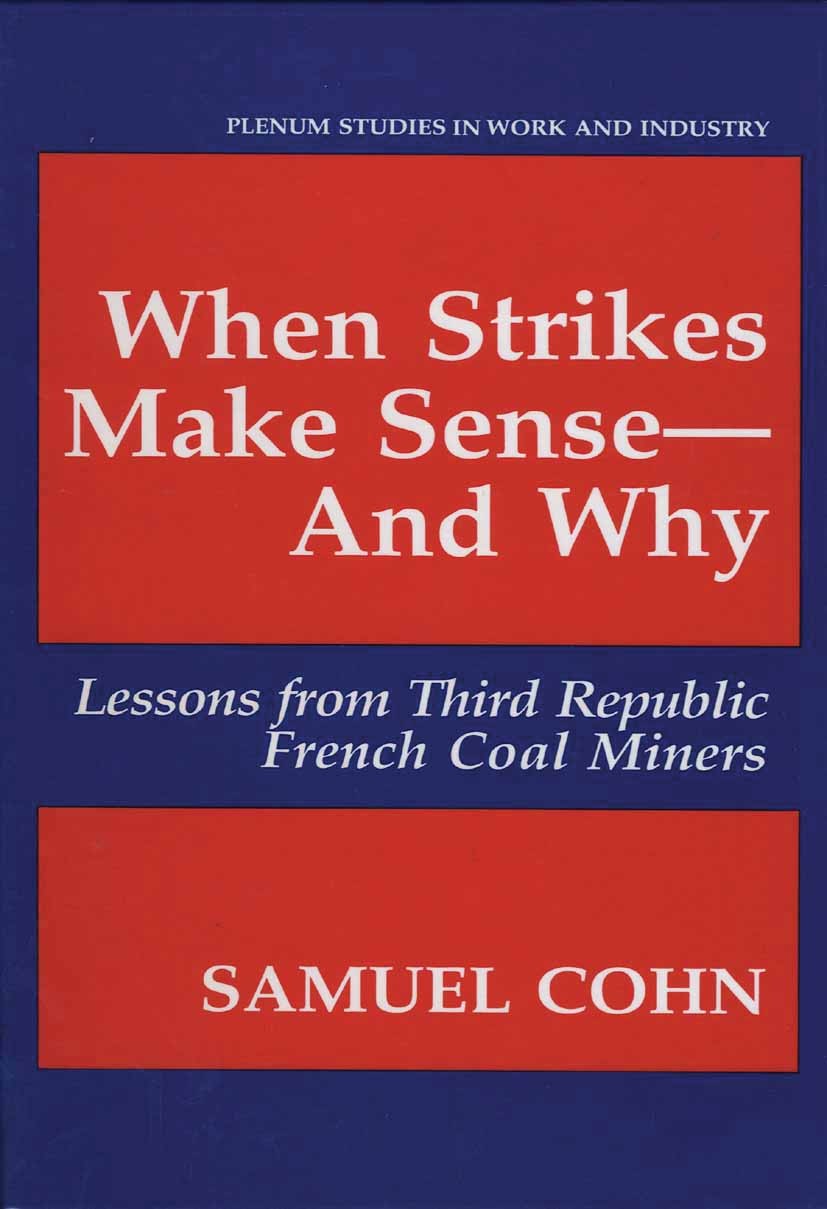| 書(shū)目名稱(chēng) | When Strikes Make Sense—And Why | | 副標(biāo)題 | Lessons from Third R | | 編輯 | Samuel Cohn | | 視頻video | http://file.papertrans.cn/1028/1027901/1027901.mp4 | | 叢書(shū)名稱(chēng) | Springer Studies in Work and Industry | | 圖書(shū)封面 |  | | 描述 | Social scientists have not helped the working class make strategic deci- sions. Unionists need to know how to carry on industrial conflict so as to provide concrete economic benefits for their members. Should unions strike or not strike? Should losses be avoided at all costs, or can unions afford to take chances? Does economism gut the class power of workers or provide a pragmatic strategy for increasing workers‘ wage gains? We can say with great confidence that workers should join unions; there is now an exhaustive and compelling literature demonstrating that union membership provides a wide variety of economic benefits. We can say that corporatist class compromises lower income but increase job security and overall employment. Beyond that, however, we cannot say much. In particular, we can do little to advise particular unions in partic- ular fixed institutional and political environments how they should han- dle the microtactics of individual confrontations. The United Farm Work- ers do not need a speech about the miracle of the Swedish industrial relations system. They need to know whether they should strike or not strike, and how their tactics should change if rival Teamsters | | 出版日期 | Book 1993 | | 關(guān)鍵詞 | Force ouvrière; Institution; Union; Unions; environment; industrial relations; strike | | 版次 | 1 | | doi | https://doi.org/10.1007/b102402 | | isbn_softcover | 978-1-4757-8774-0 | | isbn_ebook | 978-0-585-34588-8 | | copyright | Springer Science+Business Media New York 1993 |
The information of publication is updating

|
|
 |Archiver|手機(jī)版|小黑屋|
派博傳思國(guó)際
( 京公網(wǎng)安備110108008328)
GMT+8, 2025-10-17 08:14
|Archiver|手機(jī)版|小黑屋|
派博傳思國(guó)際
( 京公網(wǎng)安備110108008328)
GMT+8, 2025-10-17 08:14


